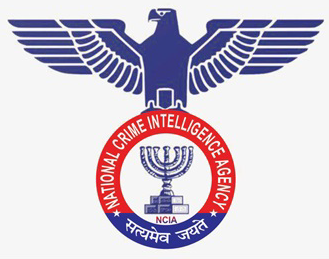Merchant Banking
NBFC Company, Chit Fund Company, Core Investment, Microfinance, Venture Capital, Prepaid Wallet License, Merchant Banking, Insurance Company, Nidhi Company, Registrar & Transfer Agent.
3000 +
Happy clients
300 +
Advocate, CA, CS
10 +
Associates Offices
Request A Call Back
Merchant Banking
In India merchant bankers is a body corporate who carries on any activity of the issue management, which consist of preparing prospectus & other information relating to the issue. Merchant banks in India are not allowed to conduct any business other than that related to securities market. There is no official category in investment banking. Merchant Banking is a combination of Banking and consultancy services. It provides consultancy to its clients for financial, marketing, managerial and legal matters. Consultancy means to provide advice, guidance and service for a fee. It helps a businessman to start a business. It helps to raise (collect) finance. It helps to expand and modernize the business. It helps in restructuring of a business. It helps to revive sick business units. It also helps companies to register, buy and sell shares at the stock exchange.

The functions of merchant banking are listed as follows:
- Raising Finance for Clients: Merchant Banking helps its clients to raise finance through issue of shares, debentures, bank loans, etc. It helps its clients to raise finance from the domestic and international market. This finance is used for starting a new business or project or for modernization or expansion of the business.
- Broker in Stock Exchange: Merchant bankers act as brokers in the stock exchange. They buy and sell shares on behalf of their clients. They conduct research on equity shares. They also advise their clients about which shares to buy, when to buy, how much to buy and when to sell. Large brokers, Mutual Funds, Venture capital companies and Investment Banks offer merchant banking services.
- Project Management: Merchant bankers help their clients in the many ways. For e.g. Advising about location of a project, preparing a project report, conducting feasibility studies, making a plan for financing the project, finding out sources of finance, advising about concessions and incentives from the government.
- Advice on Expansion and Modernization: Merchant bankers give advice for expansion and modernization of the business units. They give expert advice on mergers and amalgamations, acquisition and takeovers, diversification of business, foreign collaborations and joint-ventures, technology up-gradation, etc.
- Managing Public Issue of Companies: Merchant bank advice and manage the public issue of companies. They provide following services:
- Advise on the timing of the public issue.
- Advise on the size and price of the issue.
- Acting as manager to the issue, and helping in accepting applications and allotment of securities.
- Help in appointing underwriters and brokers to the issue.
- Listing of shares on the stock exchange, etc.
- Handling Government Consent for Industrial Projects: A businessman has to get government permission for starting of the project. Similarly, a company requires permission for expansion or modernization activities. For this, many formalities have to be completed. Merchant banks do all this work for their clients.
- Special Assistance to Small Companies and Entrepreneurs: Merchant banks advise small companies about business opportunities, government policies, incentives and concessions available. It also helps them to take advantage of these opportunities, concessions, etc.
- Services to Public Sector Units: Merchant banks offer many services to public sector units and public utilities. They help in raising long-term capital, marketing of securities, foreign collaborations and arranging long-term finance from term lending institutions.
- Revival of Sick Industrial Units: Merchant banks help to revive (cure) sick industrial units. It negotiates with different agencies like banks, term lending institutions, and BIFR (Board for Industrial and Financial Reconstruction) now SARFAESI, RDDBFI. It also plans and executes the full revival package.
- Portfolio Management: A merchant bank manages the portfolios (investments) of its clients. This makes investments safe, liquid and profitable for the client. It offers expert guidance to its clients for taking investment decisions.
- Corporate Restructuring: It includes mergers or acquisitions of existing business units, sale of existing unit or disinvestment. This requires proper negotiations, preparation of documents and completion of legal formalities. Merchant bankers offer all these services to their clients.
- Money Market Operation : Merchant bankers deal with and underwrite short-term money market instruments, such as:
- Government Bonds.
- Certificate of deposit issued by banks and financial institutions.
- Commercial paper issued by large corporate firms.
- Treasury bills issued by the Government (Here in India by RBI).
- Leasing Services: Merchant bankers also help in leasing services. Lease is a contract between the lessor and lessee, whereby the lessor allows the use of his specific asset such as equipment by the lessee for a certain period. The lessor charges a fee called rentals.
- Management of Interest and Dividend: Merchant bankers help their clients in the management of interest on debentures / loans, and dividend on shares. They also advise their client about the timing (interim / yearly) and rate of dividend.Bottom of Form
Procedure of obtaining registration as a Merchant Banker from SEBI:
For registration as a Merchant Banker, an applicant is required;
- To pay a non refundable application fee of Rs.50,000/- by way of demand draft drawn in favour of ‘Securities and Exchange Board of India’, payable at Mumbai.
- The application in Form A along with Additional Information Sheet (available under ‘Application for registration / renewal of intermediaries > Merchant Banker- need to be submitted to the below mentioned address:
- Market Intermediaries Regulations and Supervision DepartmentDivision 5 Securities and Exchange Board of India, SEBI Bhavan, Plot No. C4-A, ‘G’ Block, Bandra-Kurla Complex, Bandra (E), Mumbai – 400 05
- A Merchant Banker is required to pay fees as mentioned in following:
- Application fee (Initial and permanent registration) Rs. 50,000/-
- Initial Registration Rs. 20,00,000/-
- Permanent Registration Rs. 9,00,000/-
- A Merchant Banker is required to have a minimum net worth of not less than Rs. Five Crore.
- Every Merchant Banker is required to pay Rs. Twenty Lakh as registration fees (as per SEBI (Payment of Fees) (Amendment) Regulations, 2014) at the time of grant of Certificate of Initial Registration by SEBI.
- The Certificate of Initial Registration remains valid for five years. The Merchant Banker has to apply for grant of Certificate of Permanent Registration to SEBI, three months before the expiry of the validity of the Certificate of Initial Registration, if it wishes to continue as a registered Merchant Banker.
- The Merchant Banker is required to pay fee of Rs. Nine Lakh (as per SEBI (Payment of Fees) (Amendment) Regulations, 2014) for the first block of three years towards permanent registration, payable in terms of Schedule II of the SEBI (Merchant Bankers) Regulations, 1992. In order to keep Certificate of Permanent Registration in force, a Merchant Banker has to pay the fees as per Schedule II of the SEBI (Merchant Bankers) Regulations, 1992 every three years, 3 months before expiry of the previous fee block.
- The Certificate of Permanent Registration shall be permanent unless suspended or cancelled by the Board. But again, in order to keep Certificate of Permanent Registration in force, a Merchant Banker has to pay the fees as per Schedule II of the SEBI (Merchant Bankers) Regulations, 1992 every three years, 3 months before expiry of the previous fee block.
- As per regulation 9A registrations granted under regulation 8 & regulation 8A of SEBI (Merchant Bankers) Regulations, 1992 shall be subject to the condition that where the merchant banker proposes change in control, it shall obtain prior approval of SEBI for continuing to act as such after the change.
- SEBI circular CIR/MIRSD/14/2011 dated August 02, 2011, the prior approval granted by SEBI shall be valid for a period of 180 days from the date of communication.
- As per regulation 9A of SEBI (Merchant Bankers) Regulations, 1992, change in control shall affect the obligation to obtain a fresh registration under section 12 of the SEBI Act, 1992. Further, a Merchant Banker is required to obtain fresh certificate of registration within a period of six months.
- As per SEBI circular CIR/MIRSD/6/2012 dated May 14, 2012, the Compliance Officer of the Merchant Banker shall send the report in the revised format to SEBI at [email protected] on a half yearly basis.
Criteria for registration of Merchant Banker:
An Application by a person for grant of Certificate or License shall be made to SEBI in Form A. The application shall be accompanied by a non-refundable fee. Consideration of Application for Merchant Banking License:
- The applicant is a fit & proper person.
- The applicant shall be a Body Corporate other than an NBFC as defined under Clause (f) of Section 45-I of RBI Act, 1934 as amended from time to time.
- Applicant should have necessary infrastructure like adequate offices spaces, equipment’s & manpower to efficiently discharge his activities.
- Applicant has in employment minimum 2 persons who have relevant experience to conduct the business of Merchant Banker License.
- A person directly/indirectly connected with applicant has not been granted registration by Board.
- The applicant fulfills the capital adequacy requirement required (5 Crore)
- The applicant his partner, director or principal officer is not involved in any litigation connected with securities market which has an adverse bearing on the business of the applicant.
- The applicant, his director, partner or principal officer has not at any time been convicted of any offense involving Moral Turpitude or has been found guilty of any economic offense.
- Applicant has the professional qualification from any institution recognized by Gov. of India.
- Grant of Certificate to the applicant is in the interest of investors.
- The Board, on being satisfied that the applicant is eligible, shall grant a certificate of initial registration in “Form-B”, and shall send an intimation to the applicant.















































